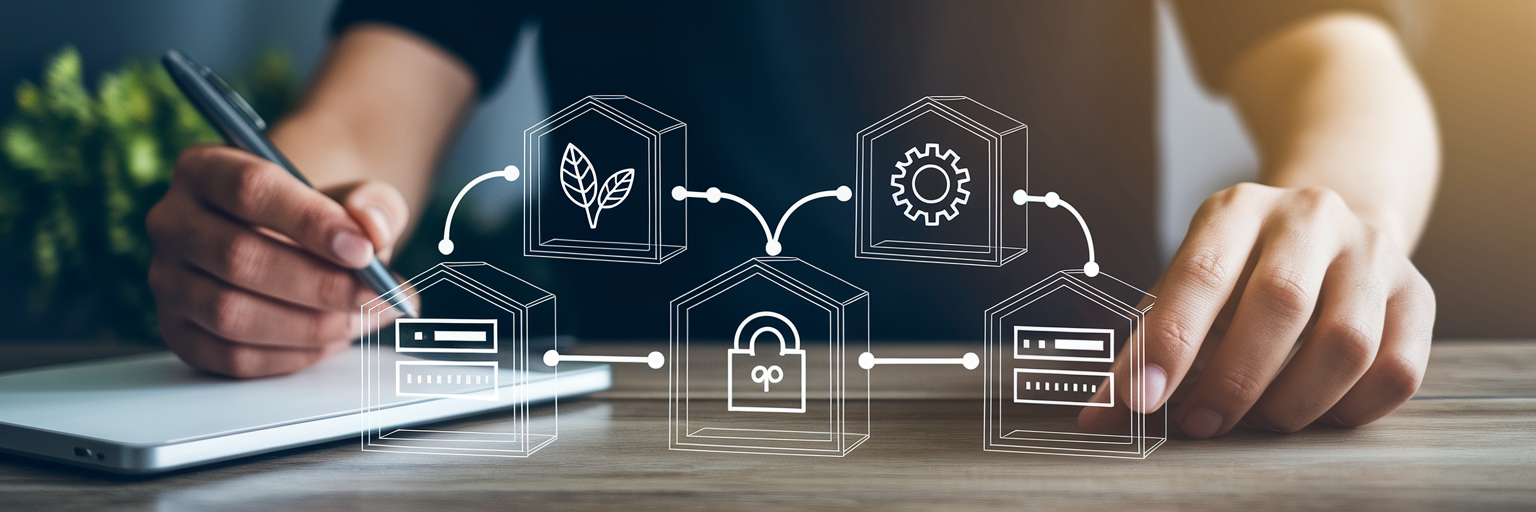Essential Data Privacy for Global Invoicing

The Foundation of Trust in Global Transactions
Every invoice sent is more than a request for payment. It is a transfer of sensitive customer data, a digital record of a relationship. In an era where data breaches are common headlines, customers have become acutely aware of how their information is handled. This awareness directly shapes their loyalty. A clumsy or insecure process can erode trust far more quickly than a single late delivery ever could.
This is especially true in the context of invoicing, which often contains names, addresses, contact details, and detailed purchase histories. We all appreciate a clear, customized invoice that speaks our language and details our transaction perfectly. Yet, this very customization can expand the scope of data being collected and shared. With each additional field, from a personal contact number to a specific delivery instruction, the need for robust customizable invoice security grows.
Missed opportunities in customer retention often stem from treating data privacy as a legal hurdle rather than a business asset. When you handle a customer’s data with the same care you put into your product or service, you send a powerful message. A privacy-first invoicing strategy is not a cost centre. It is a competitive advantage that demonstrates respect and builds the kind of long-term relationships that sustain a global business.
Core Principles of Modern Data Protection
Building on that foundation of trust requires a clear understanding of the principles that govern modern data protection. These are not just abstract legal concepts but practical guidelines for handling information responsibly. As noted by sources like Cyberpilot, these ideas form the backbone of major regulations like GDPR.
Adopting them brings clarity and consistency to your invoicing process.
- Data Minimisation and Purpose Limitation: Collect only what is absolutely essential for the invoice to function. Before adding a field to your template, ask a simple question: is this information truly necessary to get paid? For a digital product invoice, for instance, is a customer’s physical address or phone number required? Limiting data collection reduces your risk profile from the outset.
- Transparency and Consent: Customers have a right to know what data you are collecting and why. This means having a clear, accessible privacy notice available before they ever share their details. It also means being transparent about what information will appear on their invoice and for what purpose, ensuring there are no surprises.
- Integrity and Confidentiality: This principle addresses the technical and organisational measures needed to protect data. It involves using encryption to secure invoice data both when it is being sent (in transit) and when it is stored (at rest). It also means implementing strict internal access controls so that only authorised personnel can view or handle sensitive billing information.
- Accountability: You are responsible for protecting the data you hold. This means being able to demonstrate compliance through clear documentation, regular staff training on privacy best practices, and maintaining records of your data processing activities. This is central to achieving GDPR compliant invoicing and building a defensible privacy posture.
Navigating Key Global Privacy Regulations
While the principles of data protection are universal, the laws that enforce them vary by region. For any business with an international footprint, understanding the landscape of global data privacy laws for business is not optional. Regulations like Europe’s GDPR, California’s CCPA, and Brazil’s LGPD have changed the rules of engagement for companies worldwide.
A critical concept to grasp is ‘extraterritorial scope’. In simple terms, the law follows the customer. If your business is based in Canada but you invoice a customer living in France, you must comply with GDPR. This reality makes a solid strategy for customer data protection for billing essential. These laws grant individuals fundamental rights over their data, including the right to access, correct, or delete it. Your business must have clear processes in place to handle such requests related to invoice data.
Instead of juggling separate compliance strategies for each market, the most effective approach is to adopt a unified standard based on the strictest applicable regulation. This simplifies operations and ensures a high bar for privacy across the board. As you navigate these complexities, using a platform like our secure system, which is designed with compliance in mind, can help manage data according to these stringent global standards. For a wider view, a comprehensive guide from CookieYes details various regulations around the world.
| Feature | GDPR (EU) | CCPA (California) | LGPD (Brazil) |
|---|---|---|---|
| Extraterritorial Scope | Applies if offering goods/services to or monitoring EU residents | Applies to businesses that meet revenue or data processing thresholds and do business in California | Applies if data processing occurs in Brazil or involves data of individuals in Brazil |
| Key Individual Rights | Access, rectification, erasure, portability, objection | Access, deletion, opt-out of sale/sharing | Access, correction, anonymization, deletion |
| Consent Standard | Explicit, unambiguous, and granular consent required | Opt-out consent for sale/sharing of data | Explicit consent required for most processing activities |
| Penalty Example | Up to 4% of annual global turnover or €20 million | Up to $7,500 per intentional violation | Up to 2% of revenue in Brazil, capped at R$50 million |
Note: This table provides a high-level summary. Businesses should consult legal experts for specific compliance requirements.
Building a Privacy-Centric Invoicing Workflow
With a clear understanding of the principles and laws, the next step is to translate them into a practical, repeatable workflow. A privacy-centric approach must be embedded in every stage of the invoicing process, from initial data collection to final payment. This is where theory meets action.
Secure Data Collection at Onboarding
Your first interaction with a customer sets the tone. Design client onboarding forms to be lean, gathering only the data essential for billing. Each field should have a clear purpose. Accompany these forms with straightforward consent language that explains how their information will be used for invoicing. Avoid pre-ticked boxes and vague permissions. Clarity at this stage prevents future compliance headaches.
Compliant Customizable Invoice Design
Customization should enhance clarity, not compromise privacy. When designing invoice templates, focus on including necessary information like line items, payment terms, and tax details. At the same time, question the inclusion of potentially unnecessary personal identifiers. Does the invoice really need to show a customer’s internal employee ID or a secondary contact person? Every piece of data adds to your responsibility.
Adoption of Secure Invoicing Technology
The days of managing invoices with spreadsheets and email attachments are over. These methods lack the access controls, encryption, and audit trails required for secure international invoicing. The risk of sending a sensitive document to the wrong recipient or having it intercepted is simply too high. Dedicated e-invoicing solutions are built for this purpose. By choosing a solution like our platform built for security, you simplify the entire workflow with features designed to protect data from the ground up.
Integration with Compliant Payment Gateways
An invoice is intrinsically linked to a payment. The security of your invoicing process is incomplete if it leads to an insecure payment portal. Ensure you integrate with reputable, compliant payment gateways that are known for their robust security measures. This protects your customers’ financial data and completes the chain of trust you have worked to build.
Governance and Internal Accountability Measures
A secure workflow is only as strong as the people and policies that govern it. Sustained compliance requires internal structures that promote accountability and proactive risk management. This is about moving from performing tasks to building a true culture of privacy within your organisation.
- Data Protection Officer (DPO) or Designated Lead: A designated person should be responsible for overseeing the data lifecycle for invoicing. For larger enterprises, this may be a formal DPO. For smaller businesses, it can be a manager who is given the training and authority to monitor privacy practices, answer staff questions, and act as the point of contact for data-related inquiries.
- Privacy Impact Assessments (PIAs): Before you roll out a new customizable invoicing system or expand into a new country, a PIA is essential. Think of it as a strategic risk assessment. It helps you identify and mitigate potential privacy issues before they become problems, ensuring that new initiatives are compliant by design.
- Data Breach Response Plan: Hope is not a strategy. You must have a clear, documented plan for what to do if invoice data is compromised. This plan should outline immediate steps for containment, processes for notifying affected individuals and regulators, and a framework for reviewing the incident to prevent recurrence.
- Privacy Management Programme (PMP): This is the overarching framework that ties everything together. A PMP integrates employee training, regular audits of your invoicing process, policy updates, and vendor management into a cohesive strategy. It is what transforms privacy from a series of isolated actions into a core business function.
Future-Proofing Your Invoicing Practices
The landscape of data privacy is not static. New technologies emerge, regulations are updated, and customer expectations continue to rise. Future-proofing your invoicing practices means building a system that is agile enough to adapt to these changes.
We are already seeing a growing trend toward greater consumer control and data portability. Imagine a future where customers can easily export their entire billing history from your system in a machine-readable format to use with other services. This is not a distant fantasy but the logical next step in data empowerment. Furthermore, Privacy-Enhancing Technologies (PETs) like zero-knowledge proofs may one day allow for billing data analysis without ever exposing the underlying personal information.
Staying ahead requires an ongoing commitment. While technologies and laws will evolve, the core principles of data minimisation, transparency, and security will remain the cornerstones of trustworthy business relationships. To effectively prepare for what is next, businesses should consider platforms like our adaptable solution, which is designed to evolve with changing privacy standards and ensure long-term compliance and security.


